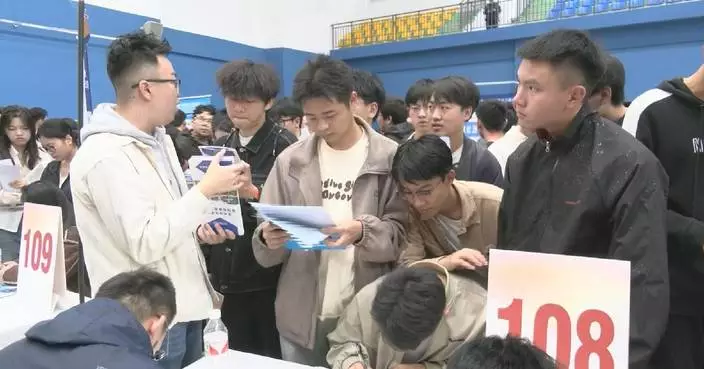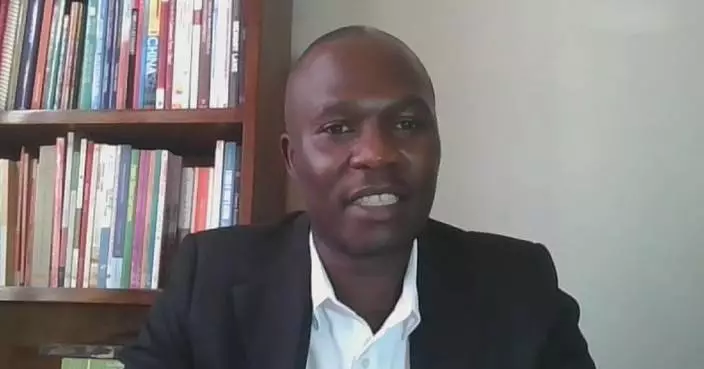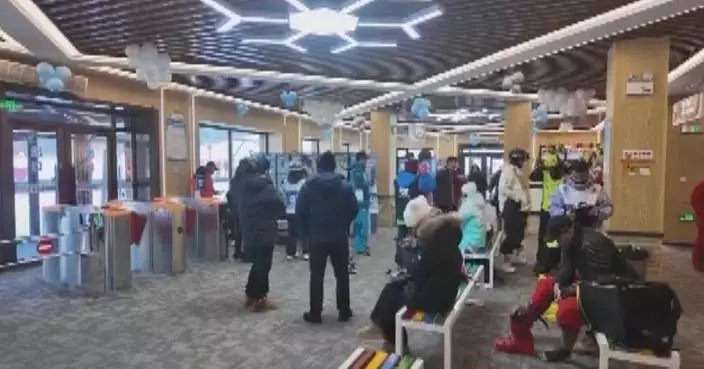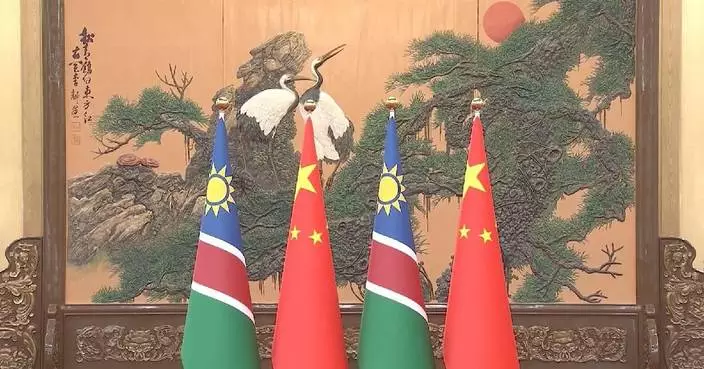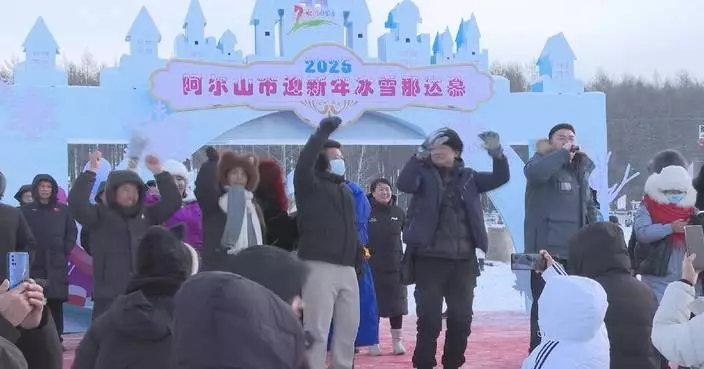While pet owners are preparing to travel back to their hometowns or jetting off to tourist destinations for the annual Spring Festival holiday, booking for pet boarding is surging sharply in east China's Zhejiang Province
Huang Haoming, an employee at a pet shop in Hangzhou, reported a surging demand for pet boarding ahead of Spring Festival as pet owners, who are preparing to travel back to their hometowns, will leave their pets behind.
He said that the pet boarding prices during this holiday ranges from 128 to 388 yuan (about 17 to 53 U.S. dollars) per day, which is 40 to 100 yuan (around 5 to 14 U.S. dollars) higher than regular rates. As of now, the store's reservation rate of the service has exceeded 60 percent.
"These cat rooms are equipped with many toys for cats to play with. During the pet boarding period, we will try our best to make the cats feel at home. The reservations are basically full when the Little New Year arrives," Huang said.
Elsewhere in the city, a pet hospital also offers pet boarding service during the Spring Festival. Pet doctors there said that they can take care of the pets' daily life while monitoring their health conditions in real time.
So far, the pet hospital's reservation rate for the pet boarding during the holiday has reached nearly 50 percent.
The Spring Festival, or Chinese Lunar New Year, falls on Jan 29 this year and the Spring Festival holiday will last until Feb 4. It is China's most important festival and an occasion for family reunion. The Little New Year, also known as the kitchen god day, will be celebrated on Jan 22 in several northern regions, and a day later on Jan 23 in southern regions.

Pet care services in high demand ahead of Spring Festival
The halting of Russian gas transit through Ukraine will result in a redoubling of efforts in Europe and Russia to find new supply routes, according to Chinese scholar of international relations.
Ukraine officially stopped the gas flow on Wednesday, following the expiration of a five-year agreement with Russia's gas giant Gazprom on Tuesday. This agreement, signed in December 2019, had allowed Russian gas to continue flowing to Europe through Ukrainian pipelines despite the conflict.
Zhang Xin, associate professor at the School of Politics and International Relations, East China Normal University, said that both sides of the trade relationship will face significant challenges as a result of the development.
"That has been anticipated for long, to essentially undermine Russia's ability to fund its military operation in Ukraine and limit Moscow's ability to use energy as a strategic leverage in Europe. And that's the main purpose. That kind of long term stable energy cooperation is part of economic interdependence between Russia and Europe has now come to an end, at least for the foreseeable future. So that's probably an even bigger loss for Russia as well as for Europe," Zhang said.
Following the halt of Ukraine transit, the TurkStream pipeline under the Black Sea has become the sole remaining route for transporting Russian gas to Europe.
The European Commission says the share of Russian pipeline gas in EU imports has plummeted from over 40 percent in 2021 to about 8 percent in 2023, with Norway and the United States emerging as the new top suppliers.
Amid concerns about supply shortages and soaring energy costs, Zhang predicts that countries will seek new ways to secure alternative transit and import routes for gas, continuing a trend that has emerged from the conflict.
"A larger implication for the geopolitics of energy for Russia, Europe, even for the global energy market probably consists of a few important trends in the foreseeable future. All major actors in Europe in Russia are going to intensify their efforts, double their efforts to look for alternative transit routes, import, export routes for gas as we've already seen in the past few years. But I think efforts along that line will be even intensified," Zhang said.

Ukraine's halting of gas transit impacts Russia's energy leverage on Europe: scholar




